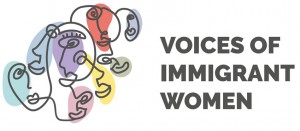Voices of immigrant women
 In a context where the number of international displacements is increasing as a consequence of “conflicts, persecution, situations of degradation and environmental change” (Report on Migrations in the World, 2017), the importance of guaranteeing “security, order and regularity of migration, fully respecting Human Rights” (Agenda 2030 for Sustainable Development Goals of the United Nations, 2015) is a crucial aspect.
In a context where the number of international displacements is increasing as a consequence of “conflicts, persecution, situations of degradation and environmental change” (Report on Migrations in the World, 2017), the importance of guaranteeing “security, order and regularity of migration, fully respecting Human Rights” (Agenda 2030 for Sustainable Development Goals of the United Nations, 2015) is a crucial aspect.
In the last years, in Europe, migration is also at the core of social and political conflicts, around the material costs for the societies and the threat to the national identities. In this context, where female migrations represent 50% of population movements, the inclusion of a gender perspective in international migrations is essential.
The project will contribute to “building an inclusive higher education system” by addressing the major societal challenge represented by migrations and, more specifically, women’s migratory flows in the present European context.
Target groups:
DIRECT TARGET GROUPS
They are higher education students of different disciplines such as social sciences, social work, education, psychology, health and medical studies, legal studies…, researchers, Higher Education professors and professionals working in the field.
INDIRECT TARGET GROUPS
They are immigrant women who will also benefit, in the long term, of the skills acquired by the aforementioned personnel who will be dealing with them.
Expected results:
- Mapping of Case Studies and Success Stories of integration of migrant in the different European partners countries.
- Transnational and interdisciplinary training e-learning program on “Human Mobility, Integration and Gender” in the European context.
- Policy Recommendation, the project will provide a set of practical oriented intervention proposal to policymakers.
Results
- MIGRACIONES, GÉNERO E INTEGRACIÓN.UN ENFOQUE INTERNACIONAL
Migration, gender and integration. An international approach
Teresa Terrón-Caro, Universidad Pablo de Olavide (España); Giovanna Campani, Universidad de Florencia (Italia), 2022 - POLICY RECOMMENDATIONS EBOOK
MIGRATIONS, GENDER AND INCLUSION FROM AN INTERNATIONAL PERSPECTIVE, 2022
Partners:
- Universidad Pablo de Olavide (Spain)
- Institute of Research for Development (France)
- Università degli Studi di Firenze (Italy)
- Mirovni Institut (Slovenia)
- European Public Law Organisation (Greece)
- Pixel – Associazione Culturale (Italy)
- Fundación EMET Arco Iris (Spain)
- Instituto Politécnico de Bragança (Portugal)
